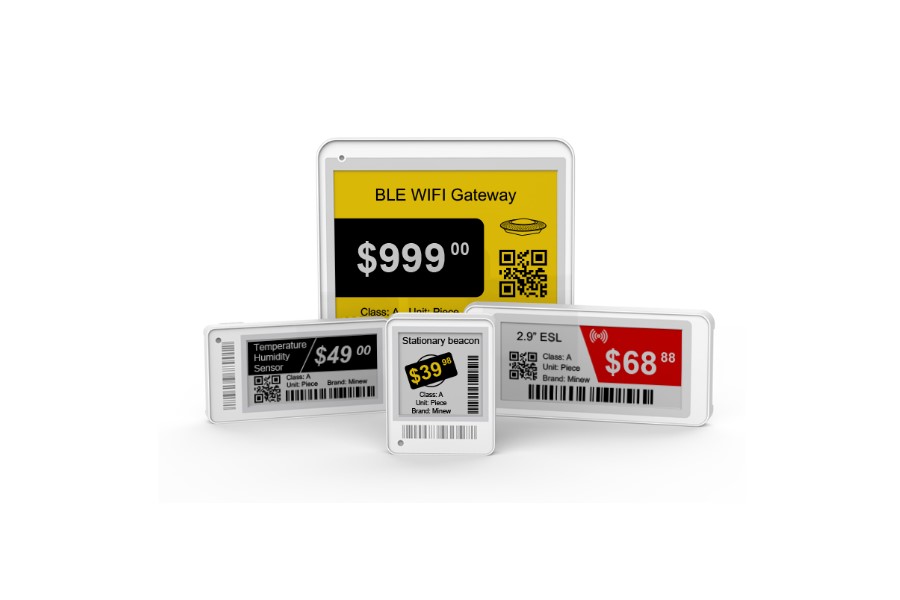“There will be so many IP addresses, so many devices, sensors, things that you are wearing, things that you are interacting with, that you won’t even sense it. It will be part of your presence all the time.” Google ex-chairman Eric Schmidt said at the World Economic Forum 2015 in Davos, Switzerland. The world is entering a new era for IoT (Internet of Things). In recent years, more and more innovative technologies and products starting to appear in our daily lives. For example, the birth of 5G technology, SMART home technology, self-driving cars, Amazon Alexa, Flyzoo Hotel, and so on. There are so many industries are affected by IoT now. In this article will mainly talk about the rise of Electronic Shelf Labels in the retail industry.
ESL (Electronic Shelf Label) is used by retailers for displaying product pricing information on shelves instead of the traditional paper pricing tag. The data shows that the global ESL market is expected to grow 30% between 2018 and 2020, and reach a market size of US$2 billion by 2019. The application of ESL will fundamentally improve the problems of errors, data leakage, and other problems caused by manually replacing labels. ESL can display product information clearly and accurately. Most of ESL are made by PC or ABS. So it is not easy to be damaged like the paper price tag. The battery life of ESL can last up to 3 years or even more without replacing the battery because ESL only consumes power on the process of data updating. Therefore, ESL is very suitable for the retail industry but also can apply in the warehouse, logistics, and other fields.
In general, ESL has the following advantages.
– Improve store image and customer satisfaction (reduce errors)
– Reduce costs (labor cost, materials cost)
– Eco-friendly, paper saving
– Ultra low power consumption
– Accurate information will be displayed
– Real-time promotions
– Optimize customer shopping experience and build customer loyalty
But if only the reasons above, it is not enough to convince the retailers to replace the ESL instead of the paper price tag. It seems like ESL is not that essential, but why the retail giants are starting installing them in store? Let’s imagine what is the future retail should look like: on-demand production, low inventory, high efficiency, and fast delivery. Compared to future retail, the current retail situation is:
1. Offline sales data: Already can get in real-time.
2. Offline inventory data: Already can get in real-time.
3. Offline pricing data: Needs to use ESL to achieve real-time control.
4. Manufacturing data: Easy to get
We can see from above if we want to achieve future retail, the only thing missing now is the offline pricing control. Retailers can accurately forecast sales and make the best sales strategy through the corresponding relationship between price and sales. In other words, under the support of big data, make predictive production and sales, the benefits will be maximized.
In essence, this is a data revolution supported by IoT. Therefore, ESL technology not only solves a problem, but also sets off a revolution, improves efficiency, and optimized cost of social collaboration. Look ahead, ESL technology is more eco-friendly than paper price tags. For companies who are looking to reduce carbon emissions, ESL technology will truly help reduce printing costs. Furthermore, in today’s increasingly competitive global business environment, retailers need to invest more for the future to bring a new and better shopping experience for consumers. ESL technology will help retailers to integrate online and offline, make the retail store more productive.
In the past two years, our dedicated R&D team works hard to make sure to bring the best ESL Smart Retail Solution. In the future, Minew will keep up with the time closely to improve the functions of ESL to achieve future retail.

 Chat now
Chat now
